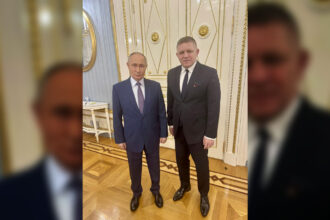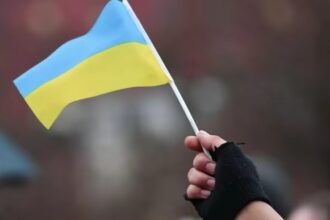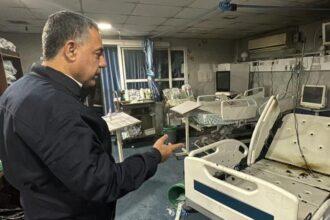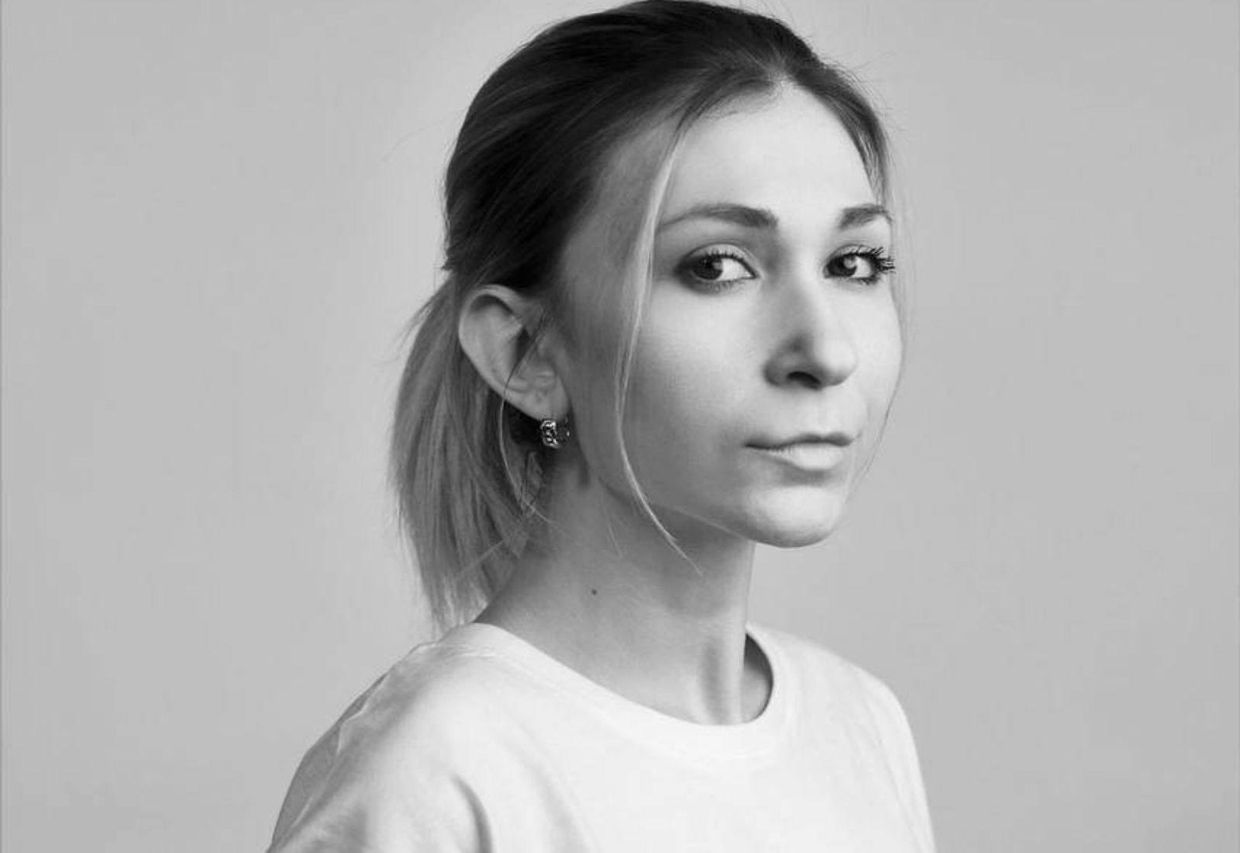The news of Viktoriia’s death shocked Ukraine and the rest of the world on October 10. She was about to be freed from Russian captivity, and return home, when she died.
Roshchyna vanished in August 2023, while reporting on territory occupied by Russia.
After more than a half-year, the Russian Defense Ministry confirmed that she was held captive.
Since then, many journalists and activists have advocated her release.
The Ukrainian authorities confirmed that Roshchyna had died in Russian captivity, shattering hopes of seeing her back in Ukraine to read more of her powerful articles.
Andrii Yusov is a spokesperson of Ukraine’s military intelligence service. He told the Suspilne news outlet that Roshchyna should be included in a forthcoming prisoner exchange.
She was reportedly detained in a notorious pre-trial center in the Russian town of Taganrog. This facility is known for its use of torture on captives. Yusov stated that her return was agreed upon. The latest information available is that she has been transferred to Moscow’s Lefortovo Prison, “in preparation for the return of her home.” Roshchyna died on September 19.
Petro Yatsenko said on national TV on October 10 that the circumstances of Roshchyna’s death were still being confirmed.
At least 91 journalists have been killed in the Russian invasion of Ukraine, including those who were on assignment as well as those who had joined the Ukrainian Armed Forces. Another 30 media workers are still in Russian captivity.
Multiple reports have surfaced of Ukrainian prisoners-of-war (POWs), who were tortured or murdered while in Russian captivity. According to Victoria Tsymbaliuk of the Ukrainian Coordination Center for the Treatment of POWs (UCCTP), at least 177 Ukrainians have died in Russian captivity between February 24, 2022 and today.
“Victoria’s death is not only the loss of a remarkable women, but also of an intrepid historian. We can say that, despite her cause of death and her age, her life was taken simply because she spoke the truth,” said the International Women’s Media Foundation in a statement released on October 10.
“We hope that her death won’t be in vain. The international community needs to pressure Russia to stop targeting journalists and silence press freedom.”
‘A journalist from the inside out’
Roshchyna’s journalism was more than a job. It was her life. Her friends and colleagues made this clear in numerous social media posts following the news of her death.
She began working as a reporter when she was a teenager. She covered the most important events and topics for Ukraine.
“All her topics were either related to the war, organized crimes or prosecution of activists,” states Yevheniia Motorevska who is the head of Kyiv Independent’s War Crimes Investigations Unit. Motorevska worked with Roshchyna in Ukrainian media outlet Hromadske from 2022 until then.
Roshchyna reported from Shchastia, in Luhansk Oblast at the time when Russia launched its full-scale war. Shchastia was one of the first cities to fall under occupation. She covered the full-scale Russian invasion for several Ukrainian news outlets including Ukrainska Pravda and Radio Free Europe/Radio Liberty.
“She believed that journalists should only write about what they have seen first-hand. Motorevska says that it was important for her to speak directly to people living in conflict zones and under occupation.
“She believed in her mission and journalism so deeply that she considered it more important than everything else. She always said: “I’m a reporter and I need be there.” “Whether it was (Russian occupied) Shchastia or Enerhodar or Berdiansk.”
Roshchyna, a Russian citizen, was detained by the Russian Federal Security Service for 10 days in March 2022 as she left occupied Berdiansk to head towards occupied Mariupol. After her release, she wrote a column in Hromadske stating that she was not afraid despite being threatened by Russians.
She wrote: “There was only despair because of the uncertainty and wasted times, the inability do work.”
In 2022, IWMF awarded Roshchyna with the Courage in Journalism Award.
Anastasiia Stanko, a journalist at X, wrote that Roshchyna was “one of the few who lived and die for this profession.”
“… For her belief that it is important to see things for herself and tell others about them. No matter how frightening it was. Stanko wrote: “I feel very sad about all these beliefs crumbling into dust.”
She was one of the journalists who didn’t have to wait for editorial assignments. Vika was there as soon as anything happened — protests, clashes and crime scenes. She was always up for a challenge, enjoyed covering law enforcement issues, and attended important and high-profile court hearings. Viktoriia didn’t care about time or geography. She was always ready to take on a new assignment, even before she was told to. She had no weekends, holidays, or sick days,” Hromadske stated in a press release.
Anna Babinets of Slidstvo.Info, an investigative media outlet, posted on Facebook that Roshchyna was considered “unstoppable” by her colleagues.
“Her thirst for journalism, for doing what was impossible, overcame the instinct for self-preservation. “And the Russians killed [her],” she continued.
Katerina Sergatskova wrote on Facebook that “she was willing to die for the right to be a reporter; this constantly pushed [her] toward places where death is.”
“I regret we couldn’t rescue Viktoriia Rosahchyna. She is a journalist from the inside out,” she said.
Sevgil Musaieva, chief editor of Ukrainska Pravda, said that Roshchyna exhibited “incredible bravery.”
“She tackled tough topics.” She felt it was important to tell the stories about Ukrainians living in occupied territory. She was impossible for anyone to stop her or hold back. She was totally dedicated to journalism,” Musaieva said on Facebook.
“Viktoriia should have been exchanged by mid-September.” She was supposed to return home. “Russia killed Vika.”
Note from the Author:
Hi! Hello! Daria Shulzhenko. This piece was written for you. Since the beginning of Russia’s war, I’ve been working non-stop on telling the stories of those who have been affected by Russia’s brutal attack. By sharing all these painful stories, we help to inform the world about the reality of Russia’s war against Ukraine. By joining the Kyiv Independent, you can continue to tell the truth about the war.
Daria Shulzhenko works as a reporter for the Kyiv Independent. She was a lifestyle journalist at the Kyiv Post from November 2021 until now. She graduated with a bachelor of linguistics from Kyiv International University, specializing on translation from English and German. She worked previously as a researcher and freelance writer.
Read More @ kyivindependent.com




